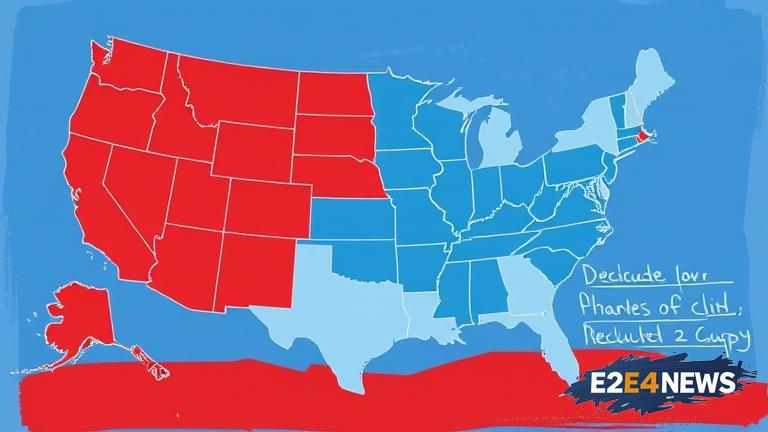The Centers for Disease Control and Prevention (CDC) has awarded a substantial grant to various states, aiming to bolster public health infrastructure and combat pressing health concerns. However, the allocation of funds has been met with criticism, as some states are facing significant funding clawbacks, while others are receiving substantial allocations. This disparity has sparked a heated debate, with many arguing that the funding decisions are motivated by partisan politics. A comparative analysis of the grant allocations reveals a striking pattern, with blue states tend to receive more generous funding, while red states are often left with reduced allocations. California, a predominantly blue state, has been awarded a significant grant, which will be utilized to enhance its public health programs and address pressing health concerns, such as the opioid epidemic and infectious disease outbreaks. In contrast, red states like Texas and Florida are facing funding clawbacks, which could potentially hinder their ability to respond to public health emergencies. The CDC grant has also sparked concerns about the potential impact on vulnerable populations, including low-income communities and minority groups, who often rely on public health services. The funding disparity has been attributed to various factors, including the states’ political leanings, population size, and existing public health infrastructure. Some argue that the funding decisions are based on merit, with states demonstrating a stronger commitment to public health receiving more substantial allocations. Others contend that the allocations are arbitrary and motivated by political considerations. The controversy surrounding the CDC grant has highlighted the need for a more transparent and equitable funding process, which prioritizes the needs of vulnerable populations and supports evidence-based public health initiatives. The debate has also underscored the importance of bipartisan cooperation in addressing pressing health concerns, which transcend party lines and require a collective response. As the nation grapples with the challenges posed by the COVID-19 pandemic, the importance of robust public health infrastructure and adequate funding cannot be overstated. The CDC grant has sparked a timely conversation about the need for sustained investment in public health, which is essential for protecting the well-being of communities and promoting health equity. Furthermore, the controversy has highlighted the need for greater accountability and oversight in the allocation of federal funds, ensuring that resources are utilized effectively and efficiently. The comparative analysis of the CDC grant allocations has also revealed opportunities for collaboration and knowledge-sharing between states, which can help to identify best practices and optimize public health outcomes. Ultimately, the federal funding fallout has significant implications for the nation’s public health landscape, emphasizing the need for a more nuanced and equitable approach to healthcare funding. The controversy has sparked a national conversation about the importance of prioritizing public health, addressing health disparities, and promoting health equity. As the debate continues to unfold, it is essential to consider the potential consequences of funding decisions on vulnerable populations and the nation’s overall health and well-being. The CDC grant has also highlighted the need for a more comprehensive and integrated approach to public health, which addresses the social determinants of health and promotes community-based initiatives. By examining the funding allocations and their potential impact, policymakers and stakeholders can work towards creating a more just and equitable public health system, which prioritizes the needs of all communities. The federal funding fallout has significant implications for the future of public health in the United States, emphasizing the need for sustained investment, bipartisan cooperation, and a commitment to promoting health equity. The controversy surrounding the CDC grant has sparked a timely conversation about the importance of public health funding, highlighting the need for a more transparent, equitable, and effective approach to allocating federal resources. As the nation moves forward, it is essential to prioritize the needs of vulnerable populations, address health disparities, and promote health equity, ensuring that all communities have access to robust public health infrastructure and essential services.
